![]()
Who: Senator
John Ashcroft
Republican-Missouri
Stance: Opposed
to Restrictions
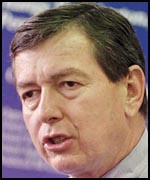 Senate
Page
Senate
Page
Sen. John Ashcroft (R-Mo.) is opposed to forcing citizens to provide the government with immediate access to their encrypted communications. As chairman of the Senate Judiciary Subcommittee on the Constitution, federalism and Property Rights, Ashcroft has been outspoken that the nation's encryption policies must represent a balance between law enforcement needs and the constitutional right to privacy.
![]()
Who: Representative
Bob Goodlatte
Republican-Virginia
Stance: Favors
Relaxed Restrictions
 House
Page
House
Page
Rep. Bob Goodlatte (R-Va.) is the sponsor of the Security and Freedom Through Encryption (SAFE) Act [H.R. 695], which would relax U.S. export controls on some encryption technology while preserving American citizens' ability to use encryption of any strength. Goodlatte first began exploring the issue of encryption as a possible economic development tool that could benefit his constituents. The widespread availability of strong encryption means that rural entrepreneurs in Virginia's Shenandoah Valley can have the same advantages as their urban competitors, he explains.
![]()
Who: Representative
Porter Goss
Republican-Florida
Stance: Favors
Restrictions
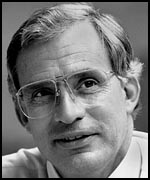 House Page
House Page
Rep. Porter Goss (R-Fla.) chairs the House Permanent Select Committee on Intelligence, a panel that supports giving authorized law enforcement officers the means to immediately decrypt encoded files and communications.
![]()
Who: Senator
Robert Kerrey
Democrat-Nebraska
Stance: Supports
Limited Encryption
 Senate
Page
Senate
Page
Sen. Robert Kerrey (D-Neb.) serves as vice chairman for the Senate Select Committee on Intelligence, and co-sponsored the Secure Public Networks Act [S. 909] with Sen. John McCain (R-Ariz.). Kerrey's arguments on behalf of some limited encryption controls stem in part from his belief that individual privacy rights must be protected without hampering proper law enforcement activities. "Our nation's policy on encryption is only a single piece of the puzzle ... [w]e need to ensure that the whole system of our public communications networks provides the security required," Kerrey said in a Senate floor speech.
![]()
Who: Senator
Patrick Leahy
Democrat-Vermont
Stance: Favors
Relaxed Restrictions
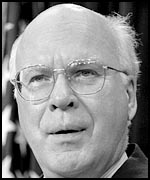 Senate
Page
Senate
Page
Sen. Patrick Leahy (D-Vt.), who said he has been "sounding the alarm bells" about encryption for several years, supports relaxing administration controls on strong encryption. He is collaborating with Sen. John Ashcroft (R-Mo.) on an encryption measure. Vocal about many Internet issues, Leahy has earned a reputation for being one of the most technologically savvy senators. One of the first among his peers in Congress to launch a Web page, he conducts town meetings with constituents over the Internet.
![]()
Who: Representative
Zoe Lofgren
Democrat-California
Stance: Opposed
to Restrictions
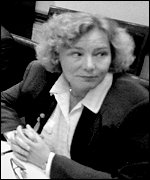 House
Page
House
Page
Rep. Zoe Lofgren (D-Calif.) represents California's 16th District, which encompasses much of Silicon Valley, including the city of San Jose. Not surprisingly, Lofgren has displayed a particular interest in hi-tech issues. She is one of the leading cosponsors with Rep. Bob Goodlatte (R-Va.) of the Security and Freedom Through Encryption (SAFE) Act [H.R. 695].
"Powerful encryption is available worldwide; a mandatory, global 'key escrow' system will never be adopted, and hundreds of thousands of American jobs will be lost if we don't change our current course," Lofgren explained last year.
"The rhetoric of fear is powerful, but it ignores the facts. International 'drug lords' or terrorists will not be affected by banning U.S. companies from exporting strong encryption. Criminals or anyone else can get the software off the Internet today."
![]()
Who: Senator
John McCain
Republican-Arizona
Stance: Favors
Some Restrictions
 Senate
Page
Senate
Page
As chairman of the Senate Commerce, Science and Transportation Committee, Sen. John McCain (R-Ariz.) has a vital role in the Senate's debate over encryption policy, and has co-sponsored the Secure Public Networks Act [S. 909] with Nebraska Democratic Sen. Robert Kerrey. McCain has been sympathetic to FBI Director Louis Freeh's arguments stating that law enforcement officers with proper authority need to be able to immediately break strong cryptography. But the senator has shied away from mandating domestic controls of encryption, choosing instead to propose legislation that seeks to create a "voluntary" key recovery system. The McCain-Kerrey bill also would create an advisory board to approve what kind of encryption may be exported.
![]()
Who: Representative
Gerald B.H. Soloman
Republican-New York
Stance: Strongly
Favors Restrictions
 House
Page
House
Page
Rep. Gerald B.H. Solomon (R-N.Y.) is adamantly opposed to legislation to lift export controls on strong encryption if that technology would not allow law enforcement officers to immediately decrypt it when necessary. And as House Rules Committee chairman, the conservative congressman wields considerable power over the House floor schedule.
![]()
Who: Representative
Curt Weldon
Republican-Pennsylvania
Stance: Favors
Strong Restrictions
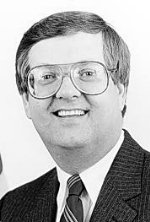 House
Page
House
Page
Rep. Curt Weldon (R-Pa.) has been among the most prominent foes of the Security and Freedom Through Encryption Act. [H.R. 695] - the bill that Rep. Bob Goodlatte(R-Va.) sponsored to relax export controls on strong encryption technology. Weldon, who was elected to Congress in 1996, has urged that before certain kinds of encryption technology may be exported, the defense secretary must be consulted and must agree to that export. But the congressman, who believes the SAFE bill as originally written presents several national security concerns, has not pushed for any so-called "key recovery" or "key escrow" provisions. Neither has he tried to restrict domestic use of encryption. In fact, Weldon's office uses Philip Zimmermann's Pretty Good Privacy (PGP) encryption to protect its communications.
![]()
Who: Americans
for Computer Privacy
Stance: Opposed
to Restrictions
 ACP
Homepage
ACP
Homepage
Founded in March 1998, Americans for Computer Privacy is a broad-based coalition of 28 trade associations and 70 diverse companies. It advocates privacy protections of Americans' communications in the information age. ACP's advisory panel boasts of several prominent figures. Among them are: former defense secretary and former CIA director John Deutch; Abner Mikva, former chief justice of the U.S. Court of Appeals for the District of Columbia and a former Democratic congressman from Illinois; former National Security advisor Richard Allen; and Philip Zimmermann, founder of Pretty Good Privacy, Inc., and creator of the PGP e-mail encryption software.
![]()
Who: Business
Software Alliance
Stance:
Opposed to Restrictions
 BSA
Homepage
BSA
Homepage
The Business Software Alliance advocates intellectual property protection for software through free trade. Founded in 1988, the BSA is composed of software industry leaders committed to such issues as encryption policy, electronic commerce and international free trade. BSA President Robert Holleyman has testified before the Senate Commerce, Science and Transportation Committee in favor of Virginia Rep. Bob Goodlatte's SAFE Act [H.R.695], which would relax export controls on some encryption products. Holleyman also has argued against key escrow proposals that have been proffered by the Clinton administration.
![]()
Who: Center
for Democracy and Technology
Stance:
Opposed to Restrictions
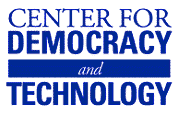 CDT Homepage
CDT Homepage
The Center for Democracy and Technology, a nonprofit advocacy group based in Washington, promotes public policies to protect civil liberties in computer and communications technologies. Founded in December 1994, the CDT maintains an active presence on encryption-related issues and has pressed to have export controls removed for strong cryptography. The group staunchly opposes proposals that effectively let law enforcement agents gain immediate access to encrypted files and communications without the owner's knowledge.
![]()
Who:
Secretary of Commerce William Daley
Stance: Favors
Relaxed Restrictions:
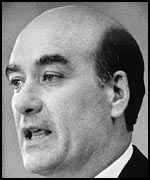 Administrative
Profile
Administrative
Profile
Secretary of Commerce William Daley and FBI Director Louis Freeh may share a common boss, but they have dramatically clashing views on encryption. While Freeh wants law enforcement to keep the upper hand when it comes to encryption, Daley is pushing for more-lenient export rules that will keep U.S. tech firms competitive with foreign rivals.
![]()
Who: Federal
Bureau of Investigation Director Louis Freeh
Stance:
Strongly Supports Restrictions
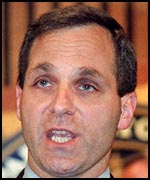
FBI Director Louis Freeh has opposed measures that would relax export controls on strong encryption technology without enabling authorized law enforcement officials to somehow break that cryptography. His arguments have persuaded many members of Congress. Although Freeh recently has eased up on his advocacy to allow administration officials to pursue talks with the industry, it is possible he still could step up lobbying efforts on Capitol Hill if legislation he believes is detrimental to law enforcement begins to move.
![]()
Who: Peter
G. Neuman, Scientist for the Computer Science Lab
Stance: Opposed
to Restrictions

CSL, SRI Homepage
As principal scientist for the Computer Science Laboratory in Menlo Park, California, Nueman has appeared numerous times before Congress on encryption ploicy issues. He has done extensive research in the area as well, including the National Research Council report "Cryptography's Role in Securing the Information Society" and co-authored "The Risks of Key recovery, Key Escrow and Trusted Third Party Encryption."
![]()
Who: The
White House
President Bill Clinton and Vice
President Al Gore
Stance: Suports
Restrictions
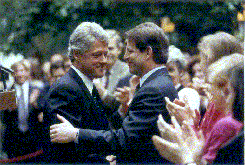 The
White House
The
White House
The current administration is firm in its support of legislation designed to limit encryption. The White House is consistent in its stance that encryption need to be controled if it will help protect national security and foreign policy interests. Despite some reductions on exports restrictions recently, the stronger encryptions are still controled. President Clinton battled in the encryption policy areana with his support of the Clipper Chip, designed to allow encryption that the United States government would have been able to access with a special "key". Vice President Al Gore is working with the Justice Department and the technology sector to determine a course of action concerning encrytion policy. Efforts include working with the technology industry to reach a common sloution to the conflict between the right of the citizens and the concerns of law eforcement officials.
![]()
Who: Phillip
Zimmerman, Creator of Pretty Good Privacy
Stance: Strongly
Opposed to Restictions

Zimmerman is the creator of the wifely distributed Pretty
Good Privacy (PGP) e-mail encryption software. Outspoken in his opposition
to legislation restricting encryption, Zimmerman has testified before the
Senate Commerce, Science, and Transportation Subcommittee
on Science Technology and Space. Also, Zimmerman has been investigated
by the government because his encryption software has traved to global
destination around the world. This was probed as a possible violation
of United States
export laws related to arm traffiking.
![]()
.................................................................................................
All information from the Wasington Post.